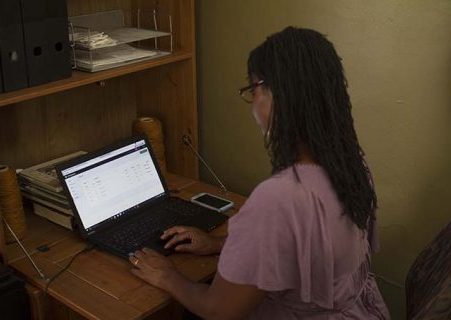The famous saying, “no pain, no gain,” rings especially true for entrepreneurs. That’s why it’s a good thing to experience some pain points as an entrepreneur. Without the following types of pain, there would be no learning or growth:

7 Pain Points Entrepreneurs Should Expect and Embrace
1. Finding Your First Users
The first users of your product or service are the key to your growth because they can tell others about what you offer. Convincing someone to be the first user, however, can be painful, as most of your work goes into influencing the decision. That’s why many companies desperately try anything to get those first users, including giving away the product or service for free or by offering a trial use period.
Getting those first users can seem like an impossible task, but it’s one worth the considerable effort required. As Lisa Stone, Co-Founder and CEO of BlogHer, said, “Wonder what your customer really wants? Ask. Don’t tell.” Those first users will come faster if you go out there and take the time to get to know them and find out what they are really seeking.
When you’re done with your initial discussions, go back and make sure what you are offering addresses their pain points. Bring them back, show them what you have done and see if it’s something they want. If they say “yes,” then you have your first users, and that pain has been alleviated. If you haven’t, it’s important to not give up.
Consider Harland David Sanders, a.k.a the Colonel Sanders of Kentucky Fried Chicken fame, who had his chicken recipe rejected by over 1,000 restaurants before it was finally accepted. If he gave up, there would be no “finger-licking good” chicken. So go out there, find your first customers, and make your product some contextually-relevant approximation of finger-licking good.
2. Being Rejected by Investors
It hurts the confidence, pride and wallet when investors don’t want to fund your startup. Hearing “no” over and over again continues to sting. If no one else believes in the idea, then it’s easy to believe that your product can’t be that good.
That’s not necessarily true, and the pain is a sign that you should find out why there is a lack of investor interest. It could be that you just have been targeting the wrong type of investors for your business, or you need to provide more evidence of current and future success. Ask those investors for the reason why they turned you down so you can regroup and try again.
The founder of Nutmeg was rejected by 45 different investors, which had to hurt. But if he gave up and skipped out on meeting #46, the company would not be the success it is today. Each meeting taught him something about what investors were looking for and which ones he needed to target.
3. Getting and Keeping Talent
When starting out, there are not a lot of resources available to create that winning team. In sports, the winning teams are often those that have the most money to “buy” the talent they need. When you’re forming a startup, there are no funds to get the best and brightest. It may seem that, without access to a skilled team, you will not be able to develop your product or service, let alone market and launch it.
Remember, however, that not every talented individual is looking for the highest bidder. Many want to get in on the ground floor and grow with a company because their goals are to be a part of something that becomes big. You can leverage this desire while also taking advantage of the incredible number of freelancers who are willing to work from anywhere in the world for startup rates.
While you may not be able to keep all the talent you come across, there are those that will stay if they see career and income growth potential. It takes effort, and not every individual you select will be right for the company, but online marketplaces and networking sites put you in front of many fish that are in the workforce sea.
4. Realizing It’s the Wrong Direction
Nothing cuts deeper than the realization that you have been heading in the wrong direction, especially after dedicating a large amount of time and money to it. You want to kick yourself for thinking you’ve wasted resources, but what you really need to do is be glad you realized it sooner than later. Now, you can pivot and alter your course to better meet your market and target customers’ needs.
As Benny Luo, Founder of NextShark, DiscoverMe and The Other Asians explained, “One day I realized that after each failure, I always gained some valuable knowledge of things I could apply to or avoid in my next project. That was the attitude I adopted after every failure from then on, I focused on what I gained instead of what I lost, because that’s what really matters in the end.” Take what you learned, put it toward the new direction and keep going.
5. Lacking Support
It hurts when you feel like you are all alone on your mission. Stephen King was rejected over 30 times with his first book, Carrie, to the point where he gave up and threw it away. But when his wife pulled it back out and encouraged him to try again, he went on to be a success. Everyone needs that cheerleader on their side that believes and provides the emotional support necessary to work through the rejection, self-doubt and frustration.
Look to offline and online networking groups for a mentor or coach that can lend support and advice to help you so you can alleviate the pain of working alone. Plus, you may even learn more from those that are supporting you. As Reid Hoffman, Co-Founder of LinkedIn, noted, “The fastest way to change yourself is to hang out with people who are already the way you want to be.”
6. Doing It All – and Trying to Do It Well
Like the lack of support, doing it all yourself all of the time—and being good at it—can leave you in considerable physical, mental and emotional pain. Overwork those muscles, and you not only will experience pain, but you could also be doing more damage than good. While it does conserve resources and feels satisfying to a certain degree, it is important to strike a balance.
When you need to, ask for help, and recognize when a particular area is not your strong suit. Asking for help does not mean you are a weak person. On the contrary, it says you are smart and savvy enough to understand where your skills and knowledge can be best utilized. Not even superheroes can do everything well. That’s why they often work in pairs or as a team.
7. Failing and Shutting Down the Business
No one wants to live that moment where it’s time to acknowledge that the business is just not going to work. You feel as though you have let yourself down, not to mention any investors, staff and family and friends. I have been through that painful experience of watching a business implode after it seemed to be going so well.
As the leader, I felt responsible, but I had to deal with it and keep going. Failures happen, and you can’t let them consume you and keep you from moving forward to something new. Some of the most successful and admired people have failed numerous times, and they will say they are glad they did.
Thomas Edison remarked, “I have not failed. I’ve just found 10,000 ways that won’t work.” Henry Ford agreed when he said, “Failure is simply the opportunity to begin again, this time more intelligently.” Finally, Napoleon Hill stated, “Most great people have attained their greatest success just one step beyond their greatest failure.” Accept the fact that this particular venture did not make it, learn from it, then focus on making the next startup a success.
The way I see it, especially now that I’m successful, if being an entrepreneur was that easy to begin with, it would not have felt as satisfying as it did when success finally came. I have failed in business but grown in character, experience and wisdom. Each of my failures has been beneficial for growing the business and exploring the potential of other startups.












